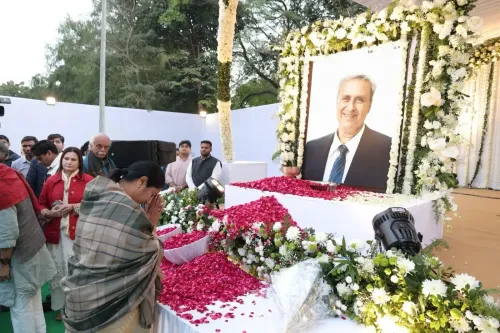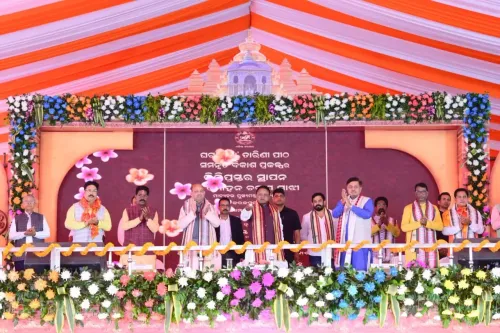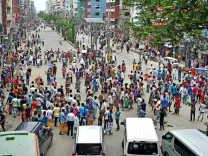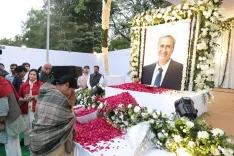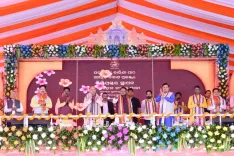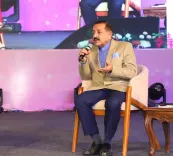Ashwini Vaishnaw Commends PM Modi and FM Sitharaman for Supporting Low and Middle-Income Families
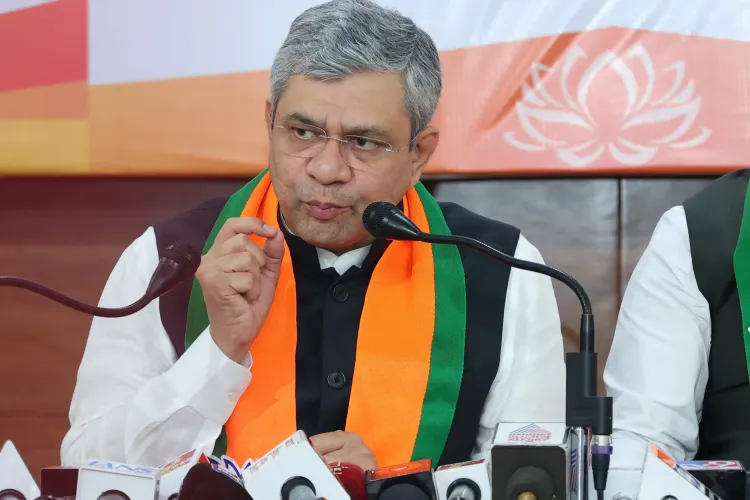
Synopsis
Key Takeaways
- PM Modi's leadership has initiated transformative reforms.
- Focus on infrastructure has benefitted middle-class families.
- The government prioritizes low and middle-income households.
- Significant investments have been made in railway projects in Karnataka.
- India is poised to become the fourth largest economy soon.
Bengaluru, Feb 15 (NationPress) Union Minister for Railways, Information and Broadcasting, Electronics, and IT, Ashwini Vaishnaw, stated on Saturday that during the budget presentation, Prime Minister Narendra Modi and Union Finance Minister Nirmala Sitharaman have consistently prioritized lower and middle-income groups in their planning.
“The entire framework will be founded on reforms, reforms, and more reforms. The forthcoming growth phase will hinge on reforms. Here, our Prime Minister emphasizes the necessity of adequate governance while avoiding burdensome regulations. Governance must be streamlined to ensure industries do not bear excessive compliance burdens,” the Union Minister asserted during a press conference at the BJP state headquarters, Jagannath Bhavan.
The minister further noted that the NDA government received a historic mandate after 60 years, marking our Prime Minister's election for a third term.
“We secured this unprecedented third mandate solely due to our commendable work. The lives of individuals throughout the nation have transformed. All these improvements were made under PM Modi's leadership,” he expressed.
He claimed that constituents frequently tell him that the initiatives commenced under PM Modi were unprecedented in the past 60 years.
“This vision includes two significant population demographics. The lives of middle-class families have notably improved due to infrastructure developments, including widespread metro services, new airports, and the establishment of 390 universities along with new IITs and IIMs. A crucial decision was made to exempt individuals earning up to Rs 12 lakh annually from taxes. Reflecting on 2014, our nation was in distress, despite having talent and entrepreneurship; it was deemed one of the fragile five economies capable of collapse at any moment,” he indicated.
He added that following PM Modi's assumption of office in 2014, major strides were made in bolstering the banking sector, which has now become one of the world's healthiest sectors. Additionally, the housing sector was reformed, new regulations were enacted, and Non-Performing Assets (NPA) were addressed. Significant infrastructure projects have initiated, with new highway and railway developments and additional airports being constructed.
“When examining the overall trajectory, our Prime Minister prioritizes public investment in social, digital, and physical infrastructure. Just a decade ago, call drops were a significant issue, and obtaining a connection was a challenge. Today, we boast among the best 5G networks globally, surpassing Europe and the US, while offering the lowest rates,” he noted.
He emphasized that social infrastructure received equal importance, with 390 new universities established in the past decade.
“The number of IITs, IIMs, and AIIMS has doubled, and the number of medical colleges has increased. The underlying objective of all these initiatives is to develop institutions, lay a solid foundation for the country, and ensure that our nation operates for the benefit of its citizens. Our current GDP stands at approximately Rs 330 lakh crore, growing at a nominal rate of 10 percent. By next year, it is projected to reach Rs 356 lakh crore, marking a significant economic stature. We are already the fifth largest economy and poised to become the fourth largest, contingent on foreign exchange rates and global conditions,” he elaborated.
“Today, our budget is around Rs 50 lakh crore. The percentage of borrowing within the budget is decreasing, with our fiscal deficit declining from 4.8 percent to 4.4 percent. When compared to developed nations, which have fiscal deficits ranging from 6.5 percent to 7 percent, we are in a robust position. This achievement is attributable to prudent decision-making over the past decade,” he stated.
Furthermore, the railway budget allocation for Karnataka has surged ninefold from the UPA era, increasing from Rs 845 crore per year to Rs 7,564 crores. The total investments in railway projects in Karnataka amount to Rs 51,479 crore, he concluded.
The government has prioritized the needs of low and middle-income families. The exemption of income tax for those earning up to Rs 12 lakh annually represents a significant benefit for salaried individuals. A decade ago, the nation's total capital investment was around Rs 2.5 lakh crore; today, it has escalated to Rs 15 lakh crore.


